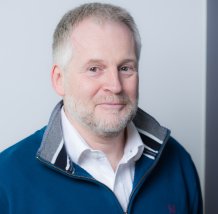
Professor Michael Schrader
Future European science leaders to work on cutting-edge peroxisome research
The EU funded Marie Sklodowska Curie Innovative Training Network PerICo has announced the start of a new, four-year, research programme on Peroxisome Interactions and Communication.
PerICo fosters education of Early Stage Researchers (ESRs) in projects aimed at uncovering how peroxisomes participate in the intricate cellular interaction and signaling network.
Peroxisomes are subcellular compartments (organelles) with important functions in cellular lipid metabolism and redox balance.
In light of the current understanding of the central role of peroxisomes in a variety of metabolic diseases, cancer and aging, this timely research programme will benefit society.
PerICo will train 15 ESRs at world-leading academic institutions, including university hospitals and companies, thus forming strong interdisciplinary links between industry, life/medical sciences and end-users.
Two ESRs will be trained and educated at the University of Exeter.
They will join the laboratory of Professor Michael Schrader to investigate the molecular composition, function and regulation of peroxisome-organelle contact sites in mammalian cells.
An important aim is to better understand the role of organelle interactions and communication in health and disease and to modulate organelle contacts to improve cell physiology.
PerICo aims to train a new generation of highly-qualified ESRs with entrepreneurial competencies in modern Life Sciences through state-of-the-art research projects focusing on the identification and functional characterisation of peroxisomal membrane contact-sites and transporters.
In addition, it will use this knowledge to develop novel leads for drug discovery and therapies for the growing list of serious human diseases in which peroxisomes have been implicated.

PerICo is a multi-partner Innovative Training Network (ITN) under the European Union programme Horizon 2020 with a total budget of 3.9 Million euros.
PerICo is coordinated by Prof. Dr. Ida van der Klei (University of Groningen, the Netherlands).
The new field of organelle interactions requires highly skilled scientists who have expert knowledge in interdisciplinary fields (e.g. cell biology, biochemistry, systems biology and medical sciences), different organelles, or more than one model organism to optimally translate their research data to other disciplines and sectors, including medicine.
PerICo will support this interdisciplinarity by establishing a strong, multidisciplinary and inter-sectoral training network, thereby developing technologies tailored to solve key questions in organelle biology.
The PerICo programme will exploit recent developments in high-throughput and genome-wide screening technologies, combine these with modern molecular cell biology and systems biology, and ultimately translate the data into new leads for drug discovery and therapy.
This specific cross-disciplinary training programme will educate young scientists to a next level, which is needed to advance this research field for the upcoming decennium and to efficiently translate findings into applications.
The training programme will be complemented with a focus on scientific soft skills that should promote the capacity of ESRs to also communicate their work optimally to the general public, investors and other scientists.
The PerICo objectives will be achieved by a diverse, well-balanced and interdisciplinary consortium with internationally-recognised experience in peroxisome biology.
The full partners in this ITN are the University of Groningen (Prof. Dr. Ida J. van der Klei), the Academic Medical Centre Amsterdam (Prof. Dr. Hans R. Waterham), the University Medical Center Groningen (Prof. Dr. Barbara M. Bakker), the University of Leuven (Prof. Dr. Marc Fransen), Lambert Instruments BV (Jeroen Wehmeijer, Prof. Dr. Lambert Schomaker), LifeGlimmer GmbH (Prof. Dr. Vitor Martins dos Santos), the Ruhr-University Bochum (Prof. Dr. Ralf Erdmann), the University of Exeter (Prof. Dr. Michael Schrader), the University of Freiburg (Prof. Dr. Bettina Warscheid) and the Weizmann Institute of Science (Prof. Dr. Maya Schuldiner).
Partner organisations include Biofaction KG (Dr. Markus Schmidt), the Hospital for Sick Children (Dr. Robert Bandsma, Dr. Peter Kim), MS-Omics (Dr. Morten Danielsen), Novartis (Dr. Dominic Hoepfner) and Oroboros Instruments (Dr. Erich Gnaiger).
For further information visit www.itn-perico.eu
Date: 4 October 2018
